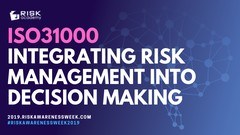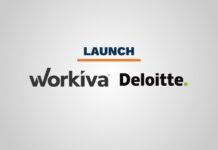Наши популярные онлайн курсы
by Dmitry Surovtsev, Schlumberger
This post is inspired by an interesting online discussion I had with Trygve Botn in the aftermath of the RAW2020 event [1].
As the original forum chat doesn’t seem to be a common meeting place for risk professionals so far, I’ve agreed with Alex Sidorenko to put this extended version of our chat in his channel and to invite everyone to comment.
The background to the story is that the Value-Of-Information topic seems to be hot in the oil and gas industry, but very cautiously applied in real decision practice. “The review of the SPE VOI literature shows that the uptake of the concept had been slow and the industry has not made VOI analysis an integral part of its decision-making process” [2].
There are several reasons for that stemming from practical challenges of assessing the four required probabilities associated with the proposed acquisition of new imperfect information (i.e. chance of true positives, true negatives, false positives and false negatives). Another factor that I believe contributes a lot to the reserved attitude of decision-makers to the VOI theory is a nearly universal theoretical claim that uncertainty reduction per se does not create value of information. “Even for information-gathering activities that cost in excess of 10 USD million, such as appraisal wells or seismic surveys, the information-collection decision is typically made on the basis of some sense of “reducing uncertainty will always have value”. As discussed earlier, this is a misconception” [2].
I am a firm believer in the wisdom of crowds as described by J.Surowiecki in his book [3]. Therefore, when an academic theory contradicts to a practical rule-of-thumb, I would first look at problems with the theory before claiming that practitioners are wrong.
The summary of our arguments is as follows:
| Uncertainty reduction doesn’t create value unless there’s a change in a decision | Uncertainty reduction per se can create VOI |
| Let me try explaining my view on why VOI only adds value if there is a change a decision.
Assume we develop a small field with capacity options of X or Y with an uncertainty around the resources. Let’s further assume we develop decision option X and at the end of field life we have produced exactly 50 MMBO, that would give you a value of Z. If you paid for information upfront, but you ended up developing the field with capacity X (the same as no information) you have essential reduced the value of your development by incurring more cost to the project (Z – cost of information). If my discount rate were reduced because I reduced uncertainty, my value at the end would still be the same. Decision makers have enough trouble even agreeing on what basic discount rate should be used, due to wide optionality in how to calculate it. Agreeing on another set of discount rates based on reduction of uncertainty is associated with an extra level of debate. As described above there cannot be value of information unless there is a change in decision. |
Let me consider your example from a different angle. Let’s say I have an oil greenfield with reserves uncertainty of 20..50..100 MMBO (P90..P50..P10; hereinbelow I use oil industry convention for fractiles, i.e. P10 is the larger number). The P10/P90 ratio is therefore quite wide (5) but not impossible in E&P domain. Now let’s assume I have a magic appraisal method that allows to reduce this ratio down to 2. The central value (P50) is likely to remain unchanged. Therefore new reserves range could be 40..50..80. My project engineer has a traditional deterministic thinking and he’s quite likely to design the facilities based on P50 number.
My main source of project financing is private equity. These guys target 30%pa return on their investments. I can also go to a bank for a 6%pa loan, but I need a collateral. “Reserves based lending” credit providers accept a pledge of future revenues from the field, but they only consider Proved reserves in their calcs. PRMS (Petroleum Resource Management System) methodology matches Proved reserve to P90 fractile (and Probable to P50, Possible to P10). Accordingly, by going for the subject appraisal method my Proved reserves will double. Now I can double my low-interest financing and reduce the need for private equity sharks’ cash. Naturally, my Weighted Average Cost of Capital (WACC) will reduce. Investment bankers often use WACC for cash flow discount rate in their valuations, so the assessed value of my greenfield would grow. I can monetize that gain by selling the field well before it depletes. Did I change my project plan as a result of that appraisal? No. Did my field NPV change? Yes. So, the uncertainty reduction per se created VOI.
I fully agree with your comment on practicalities of discount rate adjustments. In many real VOI situations we’d need to consider 1/10ths or 1/100ths of a percentage point differences in discount rates. However, I think it should be addressed as a separate step. Let’s modify first the theoretical VOI footing to match it to the common wisdom, which often offers superior decision quality |
Which camp are you in, and what will it take you to adopt a different view?
To foster a constructive dialogue on this topic, let me refer to the Douglas Hubbard RAW2020 workshop [4]. As he explained, forecasts made by teams feature a higher quality than those of individuals but only if teams consist of “belief updaters”.
References:
[1] Botn, T. 2020. How to use Value of Information to improve the decision policy in Oil and Gas? A Risk Awareness Week workshop. https://2020.riskawarenessweek.com/talks/how-to-use-value-of-information-to-improve-the-decision-policy-in-oil-and-gas
[2] Bratvold, R.B., Bickel, J.E. and Lohne, H.P., 2009, Value of Information in the Oil and Gas Industry: Past, Present, and Future, SPE Journal, Vol. 12 (4), pp. 630-638
[3] J.Surowiecki, 2005. The Wisdom of Crowds: Why the Many Are Smarter Than the Few and How Collective Wisdom Shapes Business, Economies, Societies and Nations. Anchor Books, ISBN 978-0-385-72170-7.
[4] Hubbard, D., 2020. The Failure of Risk Management. A Risk Awareness Week workshop. https://2020.riskawarenessweek.com/talks/the-failure-of-risk-management
Check out other decision making books
RISK-ACADEMY offers online courses

+ Buy now
Informed Risk Taking
Learn 15 practical steps on integrating risk management into decision making, business processes, organizational culture and other activities!
19,999,99

+ Buy now
ISO31000 Integrating Risk Management
Alex Sidorenko, known for his risk management blog http://www.riskacademy.blog, has created a 25-step program to integrate risk management into decision making, core business processes and the overall culture of the organization.
199,999,99

+ Buy now
Управление рисками
В этом коротком и очень увлекательном курсе, Алексей Сидоренко расскажет о причинах внедрения риск менеджмента, об особенностях принятия управленческих решений в ситуации неопределенности и изменениях в новом стандарте ИСО 31000:2018.
19,999,99































